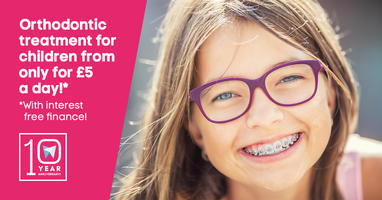If you are prone to getting canker sores and are about to embark on orthodontic treatment, there is a very good chance that you will have an outbreak at least once. Being in braces makes you more prone to cavities and periodontitis, it also makes you more propen to other dental ills, like canker sores. Read on to find out more about these annoying little buggers, and see what you can do to treat them!
Canker sores
Canker sores are caused by a wide variety of things. Stress can be a factor for their appearance. The oral cavity can get aggravated by high acid content of foods like lemons, tomatoes, or strawberries, or by a sharp tooth or orthodontic appliance. They may also indicate underlying health problems like vitamin B deficiency or immune system issues.

Orthodontics
The stress and increased bacterial load in the mouth associated with orthodontic treatments taxes the immune system. Orthodontics works on a principle of maintaining the gums in a constant state of inflammation, thus making it easier to guide the teeth through the alveolus and the jawbones. This inflammation is a necessary part of orthodontic treatment, and is a heightened immune response, as all inflammations and swellings tend to be. While in this state, the immune system is already working overtime, thus canker sores simply cannot be repressed effectively.
Canker sore treatments in braces
When you get a canker sore, there is no particular reason to go to a doctor. They will not be able to do anything beyond prescribing relief medications and creams and ointments. If you have canker sores, it may make sense to invest in some ointment for canker sores. They are effective at stopping the pain and bleeding associated with these painful little sores, and can keep your mouth healthy. There are also home remedies against canker sores you can try. The simplest and easiest to procure is just to rinse with salt water. This will make the sores sting a little at first, but will pull the skin together around them, aiding in the healing process, and killing any and all bacteria that may be hurting the affected area. Another solution is to combine milk of magnesia with Benadryl allergy liquid, half and half. Swish the solution around in your mouth for one minute, and then spit. Repeat 4 times a day for optimal effect.
image: 1.

